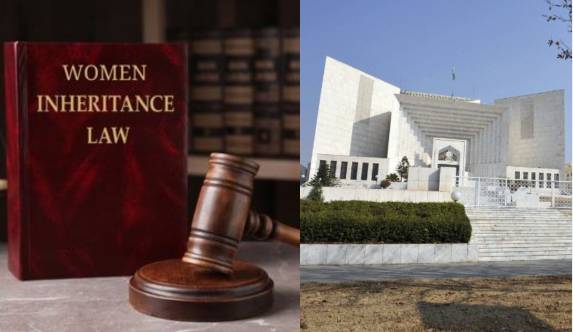F.P. Report
ISLAMABAD: The Supreme Court of Pakistan (SC) has dismissed a brother’s petition challenging his sister’s right to inheritance, reaffirming the Quranic command on women’s property shares.
A two-member bench, headed by Justice Hasan Rizvi with Justice Naeem Afghan, heard the case concerning the inheritance share of a woman named Maryam.
During the hearing, Justice Naeem Afghan observed that while sisters often serve their families by cooking and cleaning, some brothers exploit them for services yet deny them their rightful share in property.
Justice Hasan Rizvi firmly remarked that the Holy Quran has explicitly laid down a sister’s share in inheritance, and no one can deny what is divinely ordained.
The petitioner’s lawyer argued that his client, Shahab, had already given a share of the property to his sister, but she claimed it was less than her rightful share.
To this, Justice Rizvi pointed out that the property distribution deed bore no signatures from the sister, rendering the brother’s claim unsubstantiated.
After hearing arguments, the court dismissed the brother’s appeal, thereby upholding the sister’s rightful entitlement.
–Pakistani laws on inheritance–
Pakistani laws on inheritance stipulate that a sister’s share depends on surviving heirs.
A full sister typically inherits half the estate if she is the only sister or two-thirds if there are multiple sisters.
If there are brothers, she may become a residuary, inheriting alongside them, with a male taking double the female’s share.
A consanguine (paternal) sister also has similar shares, potentially inheriting the entire residue if there are no other residuary heirs.
–Islamic laws on inheritance–
Under Islamic law (Sharia), a sister’s inheritance share varies by family situation, with a single full sister receiving half the estate if there are no children and multiple sisters sharing two-thirds.
A key principle is that a son’s share is twice that of a daughter or sister. The specific amount depends on other inheritors, such as children, parents, or other siblings, who may reduce or receive the sister’s share.







